The skin needs hydration to remain elastic and look beautiful, and most of the moisture is maintained by the sebaceous gland on the skin. While this organ functions excellently, sometimes, it over secretes sebum (the body's oil), which may cause problems like acne, clogged pores, etc.
Handling the excess oil that comes out of one's skin is crucial to visually appealing and avoiding issues due to dead skin molding on the surface and causing complications.
If you wish to understand oily skins and learn some practical ways to reduce their symptoms and effect, this article is for you; let's go.
Potential Causes of an Oily Skin
Suppose you find yourself having a shiny forehead most of the time and wishing it would stop permanently. In that case, the chances are that it is an inevitable part of your reality as several factors can cause the skin to secrete sebum.
These factors include:
1. Genetics
If you're born into a family with oily skin, you're bound to have the same issue as them due to genetics. In other words, you share specific traits with your parents, and if they possess overactive sebaceous glands, the same will happen to you.
2. Location and Season
While you may be born with overactive sebaceous glands, your location and its season may trigger oversecretion. For example, a hot environment results in the body producing more oil; that's why most people experience oily skin during the summer than in winter or fall.
Leaving your location merely because of your oily skin is impractical, but you can adjust your daily routine during such times of high humidity and reduce the amount of secretion.
You can also keep a thick handkerchief to absorb the oil along with the dirt it attracts to keep your skin visually appealing and less oily.
3. Age
The first few decades of your life may be riddled with oily skin that ruins your looks a few hours after leaving the house. While this may seem problematic, it's often a factor of its time and will subside as you get older.
As humans age, the skin will produce less sebum due to the loss of essential proteins like collagen. This drop-in natural moisturization results in older people's skin looking dryer and wrinkled; fortunately, people with oily won't show signs of aging quickly since the moisture will prevent the skin from looking dry and wrinkled.
Therefore, endure your oily skin in the meantime and use handkerchiefs to wipe the excess moisture until your skin composition changes.
4. Using Bad Skin Care Products
One common trigger of oily skin is the application of skincare products that aren't compatible with your skin type. Some people mistake combination skin type for oily skin and apply heavy products that are not suitable for the tissue.
Additionally, it would be best if you structured your skincare routine according to the season since products that negate the dryness of winter will be problematic during the summer. Be mindful of the beauty creams and lotions you apply to determine how much oil will appear on your face during the day.
5. Executing Beauty Routines Excessively
Beauty routines are essential for keeping the skin fresh and radiant, but excessively washing or exfoliating the face often results in your skin's secreting oil. This occurrence is due to the washing stripping away too much moisture from the surface, forcing the skin to lubricate itself in an emergency.
You should only wash your face twice a day and exfoliate once or twice a week for maximum results and no adverse effects. Also, wear some sunscreen every time you leave the house to limit the moisture-drying effect of the sun.
How to Exfoliate Oily Skin
Exfoliation shouldn't be taken lightly by people with oily skin as it helps
eliminate pimples, blackheads, and clogged pores that may be problematic to beauty enthusiasts. However, avoid overestimating the skin's resilience, especially when using ingredients like salicylic acid, as oily skins can become red and irritated due to excess exfoliation.
Nevertheless, products containing salicylic acid are appropriate for oily skin as they are mild exfoliants that encourage skin-cell turnover. The acid is also excellent for dissolving oil, making it ideal for penetrating oil-filled pores to flush the clogged area.
5 Remedies for Oily Skin
Honey
The world values honey for its versatility, including its usefulness as a skin remedy due to its antibacterial abilities. Oily skin often results in acne, and keeping the skin moist but free from oil will help reduce the tendency of developing pimples.
Fortunately, honey can accomplish both duties and eliminate previous bumps; apply a thin layer of raw honey on the face, let it dry for approximately 10 minutes, then rinse with warm water.
Face Washing
This may seem obvious and unnecessary, but the number of people with oily skins who fail to wash their faces thoroughly is surprising. Since the oil collects skin flakes and clogs pores with the mixture, washing the face should be a common ritual.
However, avoid overdoing the process as it may produce more oil and other adverse effects. Also, avoid soaps with harsh chemicals that may irritate the skin but use mild ones like glycerin detergents to keep the body oil-free.
Aloe Vera
This ancient plant is known for rectifying many skin conditions, including fixing oily skin.
Consider applying a thin layer of Aloe Vera on the face before bedtime and only wash it off in the morning. Note that while this plant has healing properties, it also causes allergic reactions in sensitive skins, so to be on the safe side, put a little on your arm for 20 - 50 minutes, and if no irritation occurs, it is safe to use.
Tomatoes
Besides being a major cooking ingredient, tomatoes also function as a beauty product due to salicylic acid, a common ingredient in exfoliants and acne remedies.
The mix to maximize the healing power of tomatoes is to combine a pulp of tomato with a teaspoon of sugar and apply it to the skin in a circular motion. Leave the combination on your face for roughly five minutes, rinse it off then pat dry.
Almonds
Aside from being delicious, almonds help exfoliate the skin and rid it of impurities and excess oil. This benefit is achievable by grinding raw almond into three teaspoons and adding two tablespoons of raw honey.
Afterward, apply on the face in a circular motion rinse with warm water after a short while. Ensure the mask stays on for 10 - 25 minutes to achieve maximum results, but avoid usage if you have nut allergies.
Conclusion
Oily skin is natural and can be difficult to manage; however, with consistent skincare with the correct products and foods, you can lessen the effects it brings. Before trying any new home remedy, consider researching it online or with a dermatologist to be certain it will produce no adverse result.
Cleanlogic Bath & Body Sensitive Skin Dual-Texture Facial Mitt – Cleanlogic Body Care



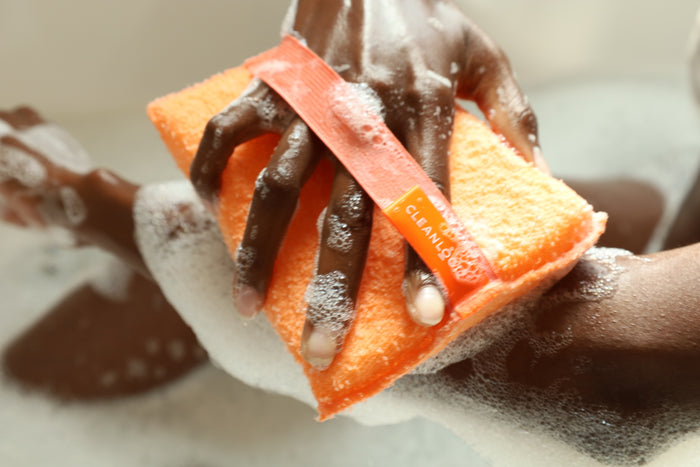

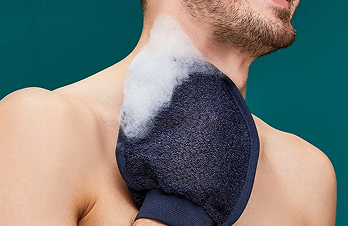


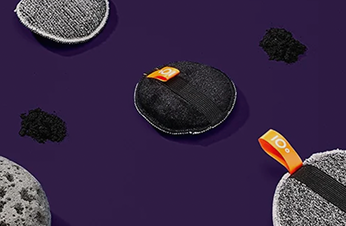
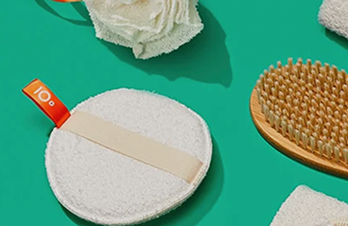
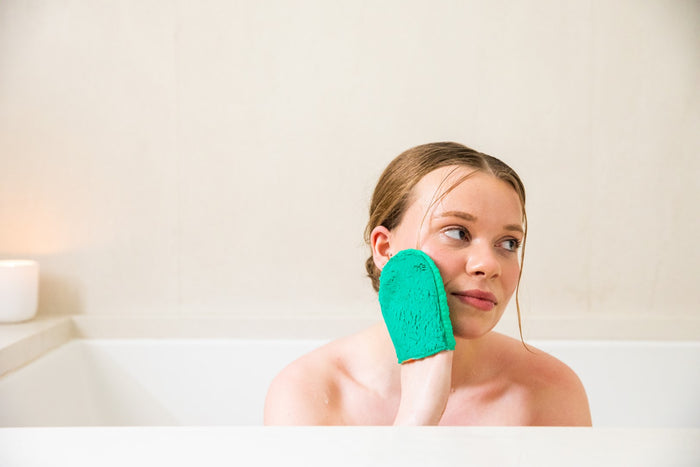

0 comments